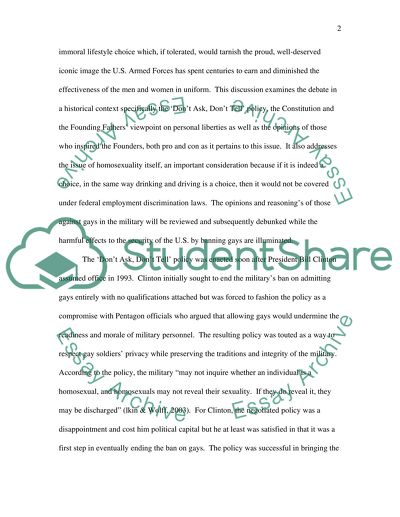Cite this document
(“Gays in the Military (Equal Employment Opportunity) Essay”, n.d.)
Retrieved from https://studentshare.org/miscellaneous/1543220-gays-in-the-military-equal-employment-opportunity
Retrieved from https://studentshare.org/miscellaneous/1543220-gays-in-the-military-equal-employment-opportunity
(Gays in the Military (Equal Employment Opportunity) Essay)
https://studentshare.org/miscellaneous/1543220-gays-in-the-military-equal-employment-opportunity.
https://studentshare.org/miscellaneous/1543220-gays-in-the-military-equal-employment-opportunity.
“Gays in the Military (Equal Employment Opportunity) Essay”, n.d. https://studentshare.org/miscellaneous/1543220-gays-in-the-military-equal-employment-opportunity.


